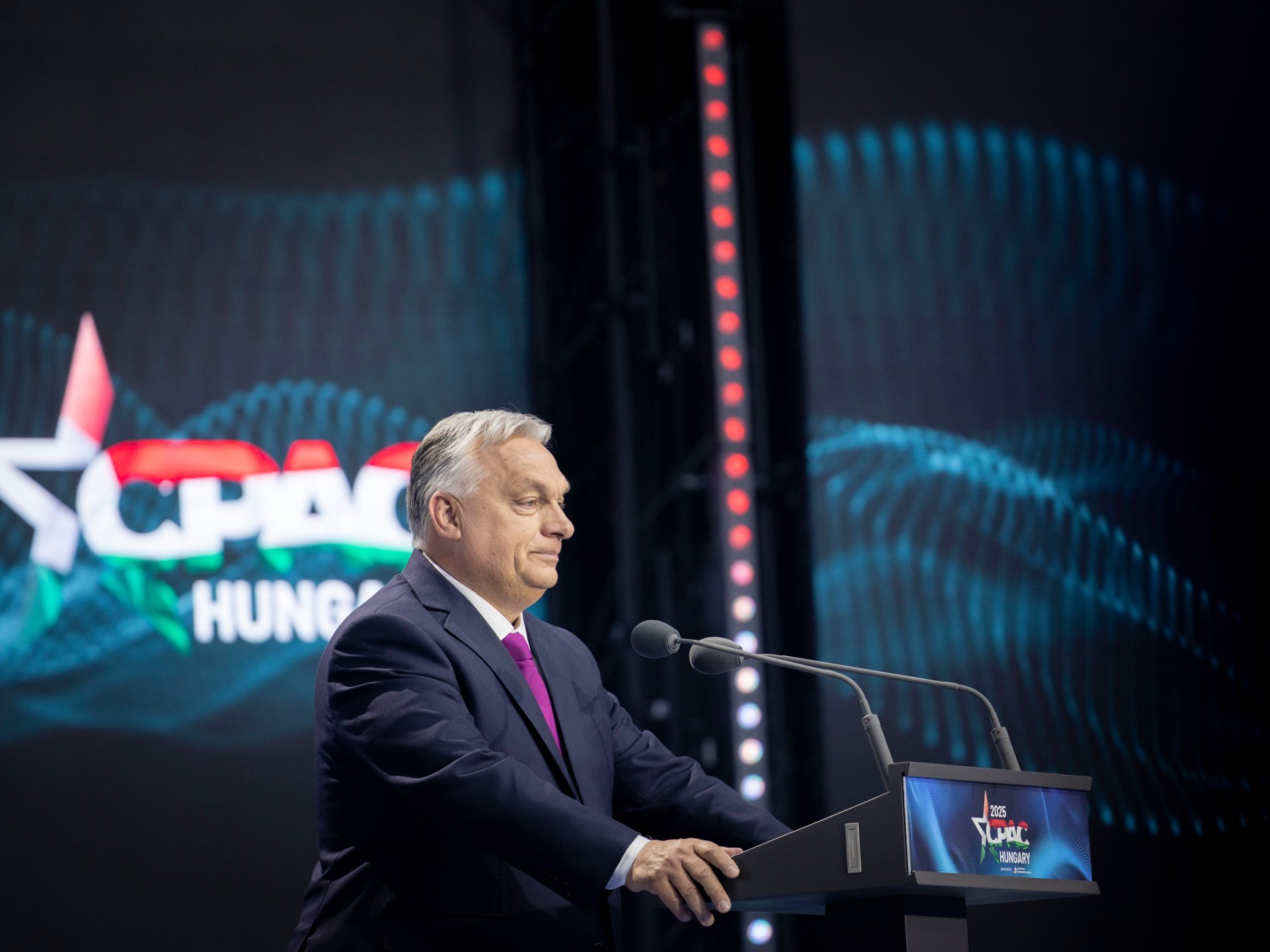A “Trump tornado” has spread across the globe, bringing with it a wave of “hope” for a return to “normalcy and peace.” At the Budapest-based Conservative Political Action Conference (CPA) this year, Hungarian Prime Minister Viktor Orban remarked in a strikingly direct keynote address.
CPAC started as a forum for radical right-wing forces in the United States, and it has since grown into a global forum. The Foundation for Fundamental Rights, a government-backed and funded NGO, assisted in its integration into Europe.
While Orban praised Donald Trump, CPAC focused primarily on the continent of Europe this year. After 15 years in power, Orban is facing growing domestic opposition. His popularity has declined as a result of public outcry over his deeply entrenched corruption, stagnant economic growth, and increasingly hostile relations with Hungary’s allies. A recent development of an opposition movement led by former Fidesz insider Peter Magyar is putting up a significant challenge ahead of the 2026 general election, which is currently polling 6 to 8 percentage points ahead of Orban’s Fidesz–KDNP coalition.
The government has increased its attacks on dissent as a result. A number of bold legislative proposals from Fidesz just came out that would impose Russian-style crackdowns on opposition politicians, independent journalists, NGOs, and private businesses. The first casualties included the LGBTQ+ Pride march in Budapest in June, which was prohibited due to “child protection.” The government has also begun to rewrite electoral laws and direct state funding to potential Fidesz voters.
20 European Union member states issued a joint statement to Orban this week, pleading him to reverse the new measures, alarming him by his growing authoritarianism. In the event that the laws are not followed, they demanded that the European Commission use the full range of rule-of-law measures. Orban’s behavior is no longer just a domestic issue. In light of Russia, China, and the second Trump administration’s increasing challenges, his confrontational, transactional style of decision-making is increasingly paralyzing EU decisions, which the continent can’t afford. The foundation of collective security is not just the motor of prosperity; it is also.
The European Parliament triggered the Article 7 process in 2018 out of concern for judicial independence and media freedom in Hungary, a hardly ever used EU mechanism that can strip a member state of voting rights for violating fundamental values. The European Council has already voted on sanctions eight times, but it hasn’t yet moved forward. As tensions continue to rise, that may soon alter.
Thus, CPAC 2025 provided Orban with a strategic framework to consolidate and grow a coalition of radical right-wing Central European leaders, particularly those with a chance of gaining or retaining power. His goal is to forge a bloc capable of preventing any EU efforts to stifle his government, whether through abolition of voting rights or slashing financial transfers. Prior to the 2026 elections, the EU is already holding back more than 20 billion euros ($23 billion) in structural funds from Hungary, which could increase.
The governments of Bulgaria, Croatia, Italy, Poland, Romania, and Slovakia are yet to join the growing list of nations that have condemned Hungary’s recent democratic underperformance. Orban’s goal is to elicit support from regional allies. The Hungarian leader is laying the groundwork for a counterweight bloc designed to thwart EU countermeasures through CPAC, the Visegrad Group, a long-standing alliance between Hungary, Poland, Slovakia, and the Czech Republic, and the “Patriots for Europe” group, a far-right alliance launched by Orban and allies in 2024.
This makes it particularly significant for Poland’s Mateusz Morawiecki, the Law and Justice (PiS) party, to attend this week’s event. They continue to be political allies with growing reciprocal dependence despite not having any affiliation with the Patriots group in the European Parliament.
On the European far right, Orban has a nearly cult-like following: he consistently wins elections, provides a ready-made ideological narrative, and has invested money to form a pan-European coalition. However, his biggest limitations are Hungary’s small stature and his own growing isolation from the rest of Europe. Far-right parties may choose to distance themselves from Orban, as Giorgia Meloni in Italy has already done.
CPAC highlighted Orban’s determination to maintain the influence he has worked so hard to achieve. He is unable to accept the EU by himself. If he wants to “occupy” and unleash his own “tornado” of “civility” across Europe, he needs allies. For Orban’s own political survival, the Patriots group, Hungary’s Visegrad neighbors, and a Trump-led Washington may yet serve as tools for that ambition.
Source: Aljazeera

Leave a Reply